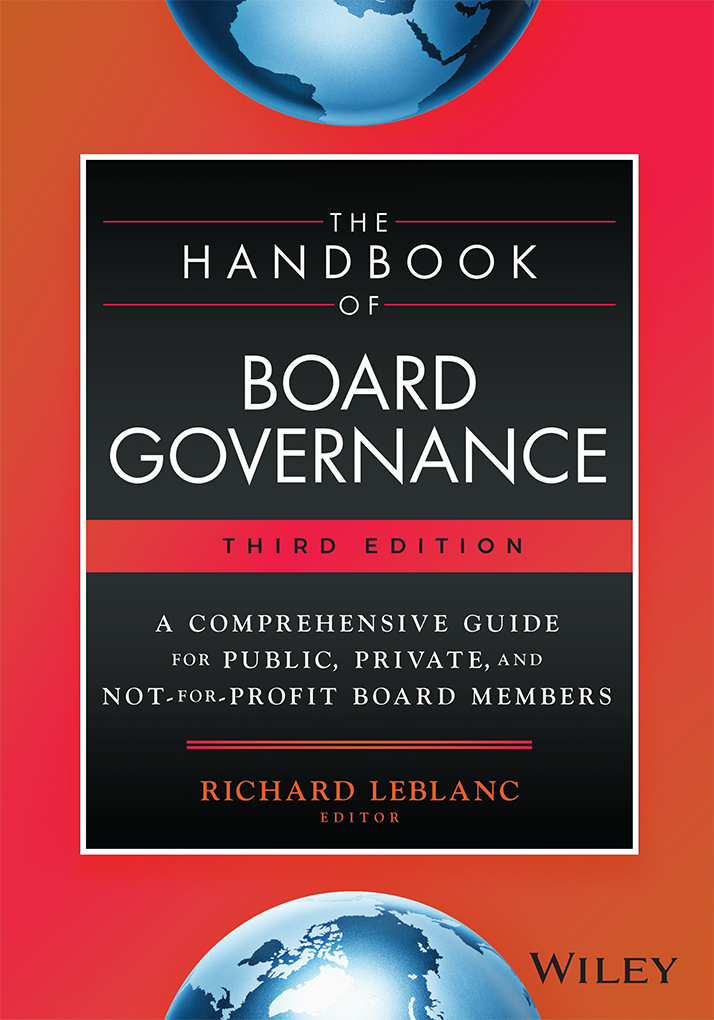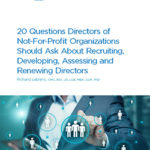There’s an old maxim that corporations don’t fail, boards do. And when banks fail, the reason is poor management, which is the fault of a poor board.
Take the case of Lehman Brothers, the financial services firm that collapsed in 2008 and played a big role in the global economic downturn. Stanford University professors David F. Larcker and Brian Tayan noted that Lehman’s board was lacking financial services experience and current business acumen. In fact, the former CEOs on the board were, on average, 12 years into their retirement. “This raises the question of whether the professional experiences of Lehman board members were relevant for understanding the increasing complexity of financial markets,” wrote Larcker and Tayan.
Well, the job of a bank board isn’t getting any easier. Following the financial downturn, banks have been placed under greater scrutiny and new regulations, both in Canada and abroad.
That’s why, more than ever, banking board directors need to be at the top of their game.
Last week, I spoke to bank directors in Dallas, Texas, about banking governance best practices as a result of a review that I had conducted for the Office of the Superintendent of Financial Institutions. (The OFSI is Canada’s banking regulator.) Specifically, I looked at Canada’s governance guidelines and board assessment criteria and compared them with international financial regulatory practices and recent developments. I provided the OFSI with suggestions for revisions.
Some proposed board reforms to Canada’s deposit-taking institutions and insurance companies sectors under the new guidelines include:
- Having directors who possess risk management and relevant industry experience;
- A risk committee that oversees enterprise risks, and a chief risk officer who reports directly to this committee and the board;
- Board approval of the internal control framework to mitigate all material risks to the financial institution, and board monitoring of internal control effectiveness;
- Expert third party reviews of the board’s effectiveness, risk management effectiveness, and effectiveness of oversight functions (such as internal audit), with results reported to the board;
- Enhanced director orientation and training, self assessment and external reviews;
- A board-approved risk management statement that translates into cascading limits and thresholds for all material business risks (e.g., credit limits, loan losses, capital levels);
- The internal audit function should report directly to the audit committee; and
- The audit committee, not management, should approve the scope of the external auditor’s engagement and fees.
When I asked for a show of hands as to how many banking directors adopted at least some of the above best practices, about half the hands went up.
However, it’s apparent that many boards aren’t prepared for a new era of banking regulations.
Remember the JPMorgan board of directors that oversaw the derivative failure that cost the bank several billion dollars? Well, here is the current board. Last I checked, not a single director other than the CEO had banking experience. This is wrong.
In 2009 and 2010, there were a total of 297 bank failures in the U.S., according to the Federal Deposit and Insurance Corporation. In the second quarter of this year, the FDIC identified 732 “problem” banks which are at risk of failing.
At the event in Dallas, one of the speakers brought up a good point. “Don’t get involved in something you don’t understand,” said Charles G. Cooper, commissioner of the Texas Department of Banking. He added: “The duties haven’t changed, but the topic is harder.”
And he’s right. That’s why it’s vital that banking boards are well-equipped with qualified directors for this increasingly complex environment.












